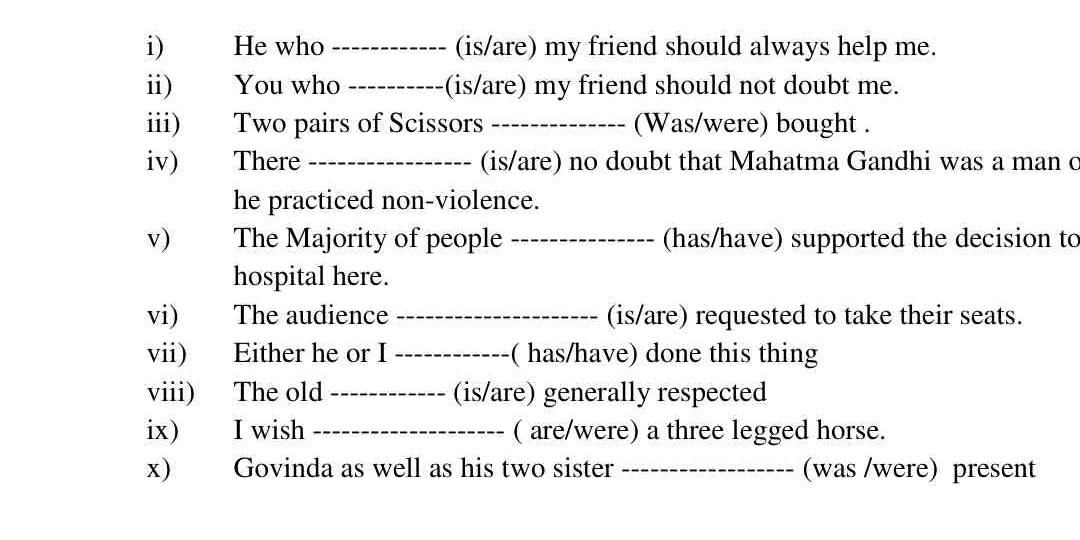He who __________ (is/are) my friend should always help me. You who __________ (is/are) my friend should not doubt me. Two pairs of scissors __________ (was/were) bought. There ___... He who __________ (is/are) my friend should always help me. You who __________ (is/are) my friend should not doubt me. Two pairs of scissors __________ (was/were) bought. There __________ (is/are) no doubt that Mahatma Gandhi was a man of peace. The majority of people __________ (has/have) supported the decision to build a hospital here. The audience __________ (is/are) requested to take their seats. Either he or I __________ (has/have) done this thing. The old __________ (is/are) generally respected. I wish __________ (are/were) a three-legged horse. Govinda as well as his two sisters __________ (was/were) present.

Understand the Problem
The question is asking to fill in the blanks with the correct form of the verb (is, are, was, were, has, have) in various sentences. This exercise tests understanding of subject-verb agreement and verb tenses.
Answer
i) is, ii) are, iii) were, iv) is, v) have, vi) are, vii) have, viii) are, ix) were, x) was
i) is, ii) are, iii) were, iv) is, v) have, vi) are, vii) have, viii) are, ix) were, x) was
Answer for screen readers
i) is, ii) are, iii) were, iv) is, v) have, vi) are, vii) have, viii) are, ix) were, x) was
More Information
Subject-verb agreement rules help ensure correct verb usage depending on singular or plural subjects or specific grammatical constructions.
Tips
A common mistake is not identifying the true subject of the sentence. Always identify whether the subject is singular or plural.
Sources
- Subject-Verb Agreement - nova.edu
AI-generated content may contain errors. Please verify critical information